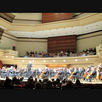Village Theatre Guild presents A Doll's House, Part 2 by Lucas Hnath
- Jan 30, 2024
- 5 min read
Three remaining performances of this play will take place at 7:30 p.m. on Friday, Feb. 2, and at 2 p.m. and 7:30 p.m. on Saturday, Feb. 3 at the Village Theatre Guild in Glen Ellyn.
Between shopping and theatre, I chose theatre. Last Sunday I was lucky to find a little gem in Glen Ellyn, a small town in the western Chicago suburbs. The name of that gem is Village Theatre Guild. It is located on Park Boulevard, just a few steps off Butterfield Road. From the email sent by Arts DuPage, I found out that starting January 12 and up to February 3 the Village Theatre Guild is presenting a play called A Doll’s House, Part 2 by Lucas Hnath. I just had to go!
Before I share my experience, I would like to remind you that the theatre will present this play three more times: at 7:30 p.m. on Friday, February 2, and at 2 p.m. and 7:30 p.m. on Saturday, February 3 at the Village Theatre Guild located at 2S720 S Park Boulevard in Glen Ellyn.
What really attracted me in this play was its plot. The description of the play said the following: “At the end of Henrik Ibsen's classic and controversial play, A Doll's House, Nora walks out on her husband and young children in search of the freedom and independence denied her in marriage. In this entertaining and thought-provoking sequel, 15 years have elapsed when Nora returns home. Each character is compelled to take sides regarding the merits of the institution of marriage. Whose side will you take?”
Henrik Ibsen was a Norwegian playwright. A Doll’s House is his ground-shaking 1879 masterpiece in three acts. It premiered at the Royal Theatre in Copenhagen, Denmark on December 21, 1879. At that time, the play caused a “storm of outraged controversy” that went beyond the theatre to the world of newspapers and society. The reason – it touched on topics such as women’s rights, morality, society, marital and parental responsibilities, relationships, and many other psychological issues.
A married woman at that time didn’t have many rights and couldn’t make many decisions, including legal decisions. Particularly, she couldn’t divorce her husband without his agreement. Lucas Hnath, an American playwright, decided to create a sequel where he fantasized about Nora’s fate after she left her husband and three children. He succeeded in catching everyone’s attention with his play.
A Doll’s House, Part 2 became Hnath's first play to appear on Broadway. It premiered at the John Golden Theatre on April 1, 2017. The production was directed by Sam Gold and starred Laurie Metcalf, Chris Cooper, Jayne Houdyshell, and Condola Rashād. A Doll's House, Part 2 was nominated for eight Tony Awards that year, including Best Play. It was also nominated for the Outer Critics Circle for Outstanding New Broadway Play.
At the Village Theatre Guild, the play was directed by Cynthia Katz and produced by Renata Allelujka. It features the following actors: Claire Yearman as Nora, Judith Laughlin as Anne Marie, who is a nanny, Guy Sullivan as Torvald, Nora’s husband, and Kate Schiliro as Emmy, Nora’s daughter.
Nora walked out of her relationship with Torvald because she didn’t feel a complete person with him; that relationship literally didn’t give her enough air to breathe and be herself. In the sequel, Nora at first thought that her husband gave her a divorce and over time she became a famous writer who wrote books about women’s freedom from tiring and unfulfilling relationships. She criticized marriage and wrote that only by living by herself can a woman feel a complete person. Some women after reading her books started leaving their husbands. Soon it was discovered that Nora was still a married woman. She was asked to write in all the newspapers that she takes her words back about all the bad things that she wrote about marriage, or her real name and her marital status would be revealed (she wrote books under a surname). She could also run into other significant problems.
Fifteen years after leaving her family, Nora comes back home to ask for a divorce. There she first had to face a nanny, Anne Marie, who raised Nora when she was a child and after Nora left – her three children. Nora also ended up facing Torvald, her husband, who for a while was refusing to give her a divorce, but in the end finally agreed. She also met her daughter, Emmy, who grew up into a beautiful young lady and who was ready to get married.
What impressed me in this play and particularly in this production was the way the actors interacted with each other and the way each of them presented their monologues. I liked the setup; it was simple yet absolutely fulfilling for the play. I liked the artistic presentation of the actors and their nonverbal interaction with the audience. Yes, they didn’t look into my eyes, but I constantly felt connected to them and totally forgot about the surrounding world. I was inside of the story, and this is the biggest power of art – to carry the audience away from reality and make people think, analyze, and feel.
This deep psychological drama made me think about human relationships and understand that even years later women still often struggle in marriages. While listening to the actors’ monologues, I empathized with each of the characters – with Nora, with Anne Marie, with Torvald, and with Emmy.
Nora spoke about how bad she felt in her marriage. Anne Marie explained that she was poor, never had choices, and had to work her entire life watching other people’s children while leaving her own child with strangers. Torvald passionately noted that he gave his wife and children everything that they needed and always took care of them. Emmy expressed her feelings about being raised without her mother and how eventually she got used to it and still felt happy. Emmy also believed in marriage and wanted somebody to give her hugs and take care of her, so she totally disagreed with her mother on marriage.
My conclusion was that Nora was fighting with the system itself, and not particularly with her husband. She would have been unhappy with any other man if she chose to marry someone else. Interestingly, after Torvald finally gave her the divorce certificate, she left without taking it.
I also must add that I was impressed by the coziness and intimacy of the theatre itself – that place is small, and the audience members sit very close to the actors, so when I was there, I almost felt being part of the play. It was a great experience!
The Village Theatre Guild is a non-profit community theatre that was founded in 1963. It is in a historic building that was once a one-room schoolhouse built in 1917. Only about 60 audience members can fit in the theater around a thrust stage.
Tickets are $25. They are conveniently sold at the door (for cash). You can also purchase tickets on https://www.artsdupage.org/event/a-dolls-house-part-2/
Natalia Dagenhart
01/30/24



























Comments